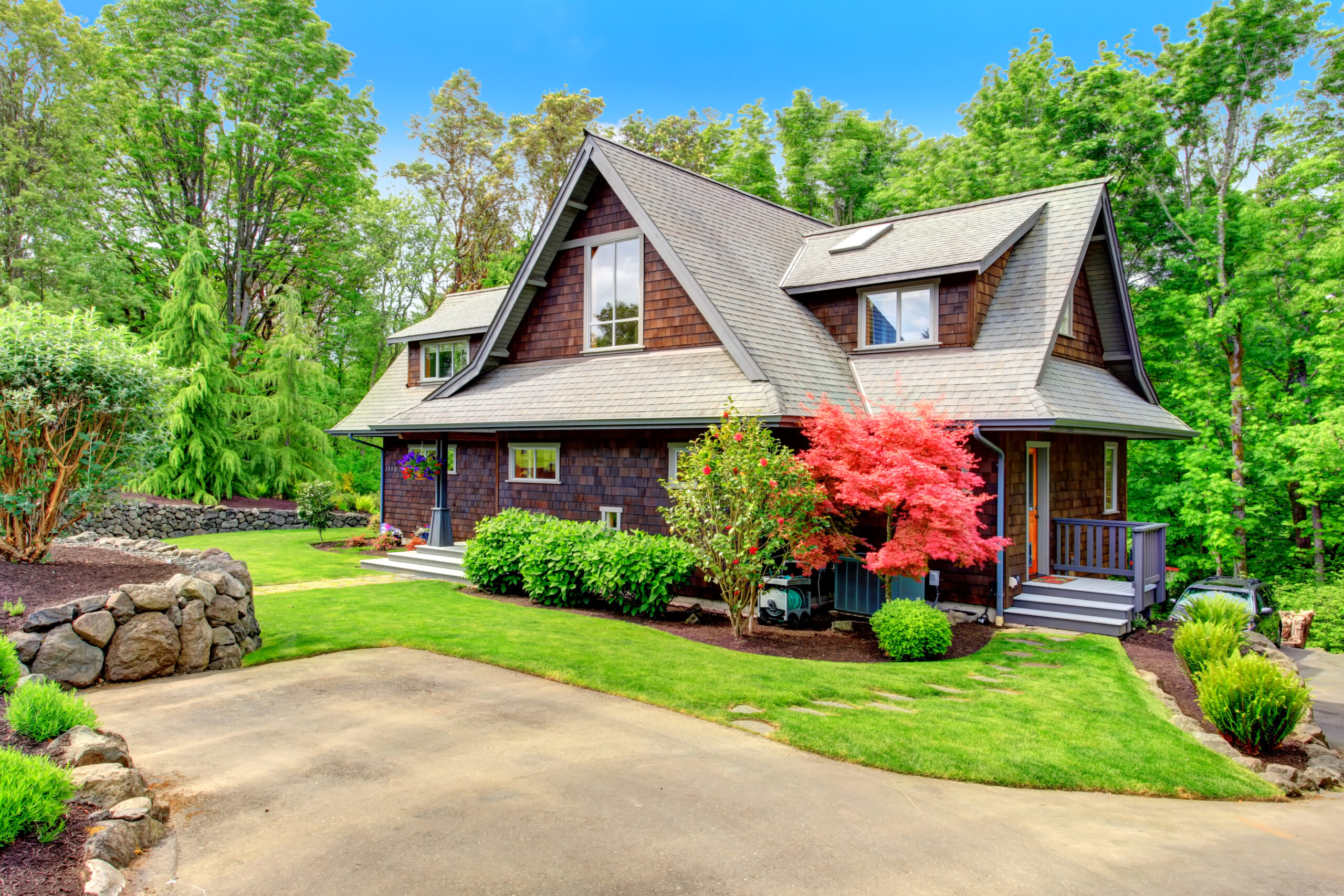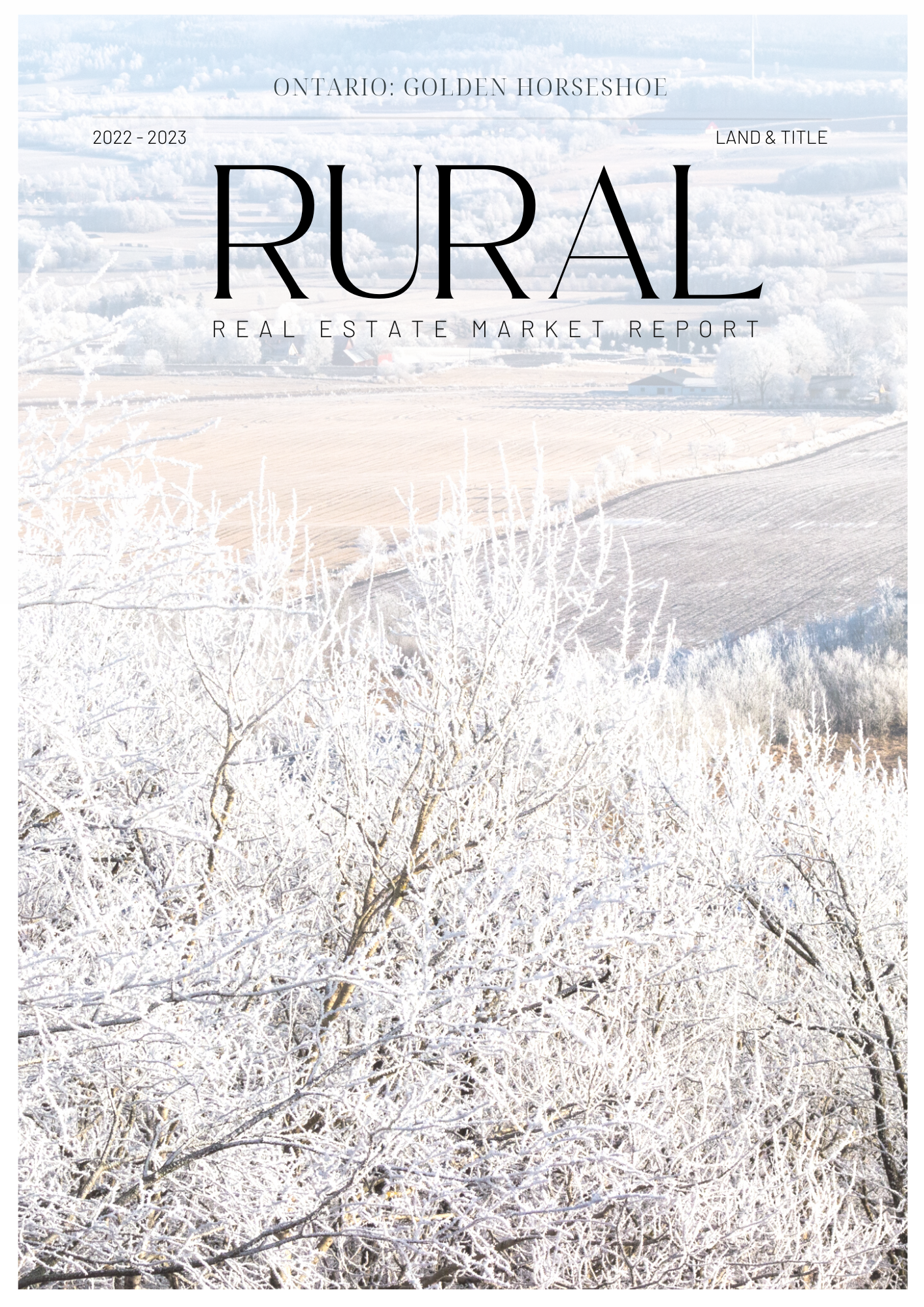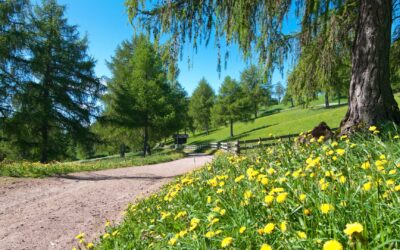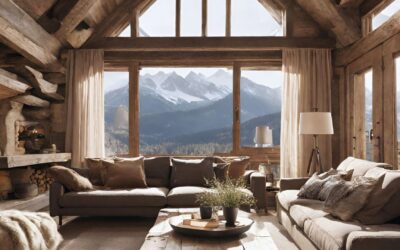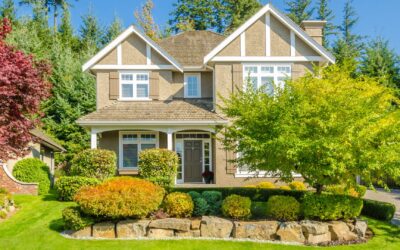Buying a rural property or country home can be intimidating. Arming yourself with knowledge and as much information about country living beforehand is the best way to feel comfortable and confident with buying this type of property.
In this article, we go over 5 of the most common concerns that first time rural home buyers have and dive into how you can overcome them.
1. Can I afford to buy this house?
A question asked by many people looking to buy a home, any home.
To answer this question it is essential that you speak with a mortgage broker (or your bank) to find out what price of the home you would be PRE-QUALIFIED for BEFORE you even start seriously looking for a country home to buy. This will give you an idea right off the bat what price range you can look in.
You can contact us for a list of trusted mortgage brokers and lenders.
Now, just because you can afford let’s say, a $900,000 country home, doesn’t necessarily mean you should buy one.
If buying a $900,000 home is going to put more strain on your finances, or worse if you are going to be living paycheque to paycheque in order to make the mortgage payments on this home, we would strongly recommend considering a more affordable rural home.
You can use this mortgage calculator to figure out an estimate for your monthly mortgage payments to help you get an idea of what you’ll need to budget for on a monthly basis.
Along with mortgage payments, you’ll have similar costs to what you’re used to in the city… property taxes, home insurance, utility bills (although these might be slightly different), as well as the added costs of maintaining your property and utility systems (more on that below). All things you’ll want to budget for.
If you need an outside perspective, consider talking with an accountant to analyse your income and expenses as well. You are welcome to contact us if you would like accountant recommendations.
This leads us to our second point that will continue to help answer the affordability question.
2. What costs are involved in the purchase?
To help you decide if owning a country home is something you can do, here are some costs you can account for. Using these estimates might help you to come up with a financial plan for the purchase of your rural home.
Land Transfer Tax – you will have to pay land transfer tax when you buy a home. To calculate an estimate of this cost you can visit our Land Transfer Tax Calculator page here.
Lawyer Fees – It can be difficult to accurately estimate these fees. The best thing to do is to contact your lawyer for an estimate. Typically we see fees being around $1,500-$2,500 depending on the property.
Home Inspection Costs – A home inspection for a country home can range from $400-$600 depending on the property.
Septic System Inspection Costs – Private septic system inspections in Ontario can range from $250-$420. This cost could be higher depending on how thorough of an inspection you decide to do or is possible.
Well & Well Water Inspection Costs – You’ll definitely want to have the well and well water checked out by a professional before making a rural home purchase. Typically with a well inspection, you are going to be testing for well capacity, flow pressure, and water safety/potability. You can expect to pay $150-$400 for a well inspection. This cost will depend on the type and number of well water tests you elect to do.
Title Search Insurance – It is not mandatory that you have title insurance when you buy a home in Ontario. However, most mortgage lenders require it if you are getting financing with them, especially when there is no property survey. This can cost $300-$500 depending on the property. This is usually only a one-time fee that will make up part of your closing costs.
Home Insurance – You can get an estimate of your home insurance by going online or speaking with your current home insurance provider. We cannot provide an estimate here because there are many factors that go into calculating the cost of your home insurance.
Property Taxes – You can get a pretty good estimate of what your taxes are going to be by looking at the country home listing. Often times the listing will include either the current or the previous years’ tax amount. You can also use a property tax calculator for the region you are searching for a home in, but these aren’t always 100% reliable.
A note on Commission Fees – There is a common misunderstanding with some new home buyers that they pay commission fees. This is not the case. The seller pays the commission to both the buying and selling agents. Unless some sort of agreement is made between you and your agent prior to the purchase you will not owe any commission fees.
3. Am I overpaying for the property?
There is no exact formula that you can come up with to answer this question for you. There are a lot of factors that go into deciding what price you can and should pay for a property.
Here are some factors that you can investigate so you feel more confident about the price you pay for your country home.
Market conditions
Ask yourself what the current market conditions look like. Are we in a seller’s market? A buyer’s market? A balanced market? What is going on in the economy? What are interest rates like? And so on. All of these factors (and more) are going to have an impact on what price you end up paying for the property. If we are in a seller’s market, you can expect to pay a premium for the property since there likely won’t be many other options to choose from. There could even be a chance that you end up competing for the property. If we are in a buyer’s market or one that is more balanced, you may be able to negotiate on the price.
Comparables / inventory / time on the market
Looking at recently sold listings (~ 6 months to date) can give you a good idea of what houses are selling for. As mentioned above, less inventory on the market means you have less to choose from and you may not be able to negotiate down on price as much as you might want to. If the property has been sitting on the market for some time it could be that a) It is overpriced or b) something is wrong with it that is not immediately apparent from the listing or c) we are in a buyer’s market and there are a lot of other homes to choose from, all of which give you an opening for negotiating on the price.
Now, rural homes are special and oftentimes unique from one to the other. In urban or suburban neighbourhoods, looking at comparables is essentially comparing apples to apples but with rural homes, this is often not the case. Also, a country property may have a particular feature that is more valuable to one buyer but maybe less so to others. The buyer who values a certain feature may be more willing to pay a higher price for this home than another buyer. This is something that needs to be accounted for when comparing sold rural listings to come to an agreeable offer price.
Neighbourhood
It is a good idea to know what neighbourhood you’re buying in. With country homes you don’t necessarily have “bad neighbourhoods” but there are certainly areas you want to be in and others you might not. The neighbourhood you want to be in will depend on where you want to be, what price range you are looking in and how important the perceived value of the area is to you.
For example, if you need to commute to Toronto but want to live in the Niagara Region, buying a rural home in Grimsby is going to be more valuable to you than say buying in Sherkston (Port Colborne), even though on average rural homes there might be slightly cheaper.
The Home and Property
Is it the right home and the right property for you? This is a question only you can answer. And you need to decide what you are willing (and of course, able) to pay to get the ideal home for you. We’ve had many clients that decide to purchase a cheaper property and put money and work into the home to make it ideal for them. Others are willing to pay more than asking in a competition setting because it is the perfect home for them. And some prefer to wait for the stars to align where the right property and the right price come together. All of which is perfectly fine! At the end of the day, the decision is ultimately up to you.
4. How much work is involved in maintaining the property?
We can’t really answer this question without knowing exactly what property we are looking at. Naturally, this is going to depend on the size of the property, how much of it is lawn vs. naturalised, the length of the driveway, the type of property and so on.
The best thing to do, once you have settled on a property, is to make sure you have all the equipment you will need to maintain the property. At times, the current owners will leave items behind such as a riding mower or snow blower if they don’t require it at their next property. We have a client / friend who got really lucky when he purchased a country where the previous owners left him a tractor!
If you have a lot of lawn you will definitely want to invest in a riding mower or budget for hiring out landscapers for the spring, summer and fall months if you prefer. If you have a 600 ft. driveway a tractor and plough is going to be a blessing in the winter months. Items like hoses, shovels, fencing tools and others depending on what your plans are for the property.
5. How do I manage the utility systems on a country property?
The two main systems you are going to need to get used to and learn to maintain will be your water and your septic systems.
We’ve done an article on caring for both systems (see links below). So we won’t be diving too deep here. In short, caring for your well and septic system involve firstly inspecting them before you even buy the rural home, secondly, preparing yourself with basic knowledge about the system, thirdly, using the systems properly and lastly making sure to conduct regular maintenance checks on these systems.
6. Is the country life the right lifestyle for me?
Living in the countryside can be a magical experience but at times it can also be hard work.
The good news is there are a variety of country lifestyles you can choose from to suit your needs. You can find smaller acreages closer to town so that you don’t have to change your life too drastically by your move. At the other end of the spectrum, if you want a more rural life, living far away from any city and don’t mind a 15-minute drive to get groceries, that option is available too. And there are many other options in between.
It is good to remember that, unlike the city, you may have to contend with things like septic system malfunctions, potential well issues, a larger lawn to maintain, often times a larger driveway to plough in the winter, driving further to get groceries, living further away from friends and so on. As we have said many times, this is a rewarding life but just remember to be mindful of all the aspects that come with this lifestyle.
Do you have any concerns about buying a rural home that we missed in this article? You can reach out to us any time and we’d be happy to answer your questions. Email us at [email protected].

